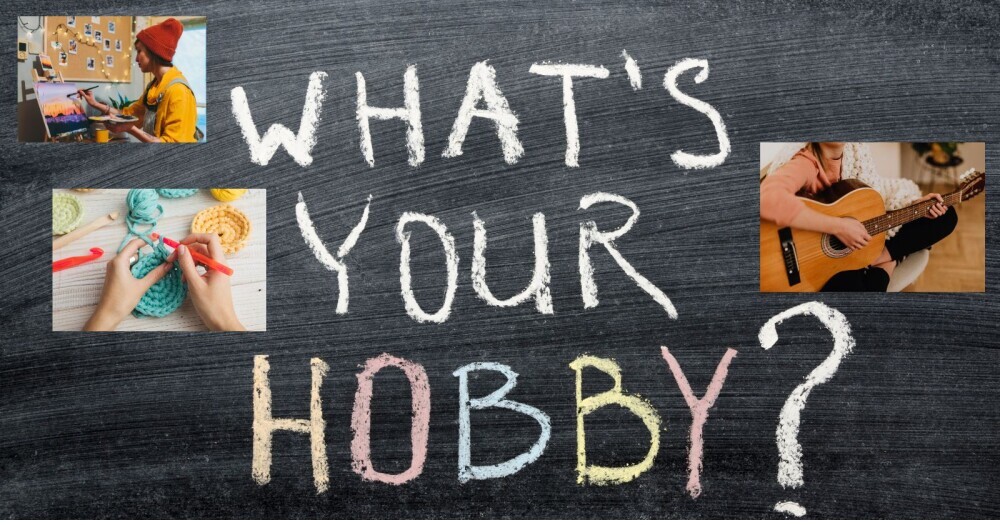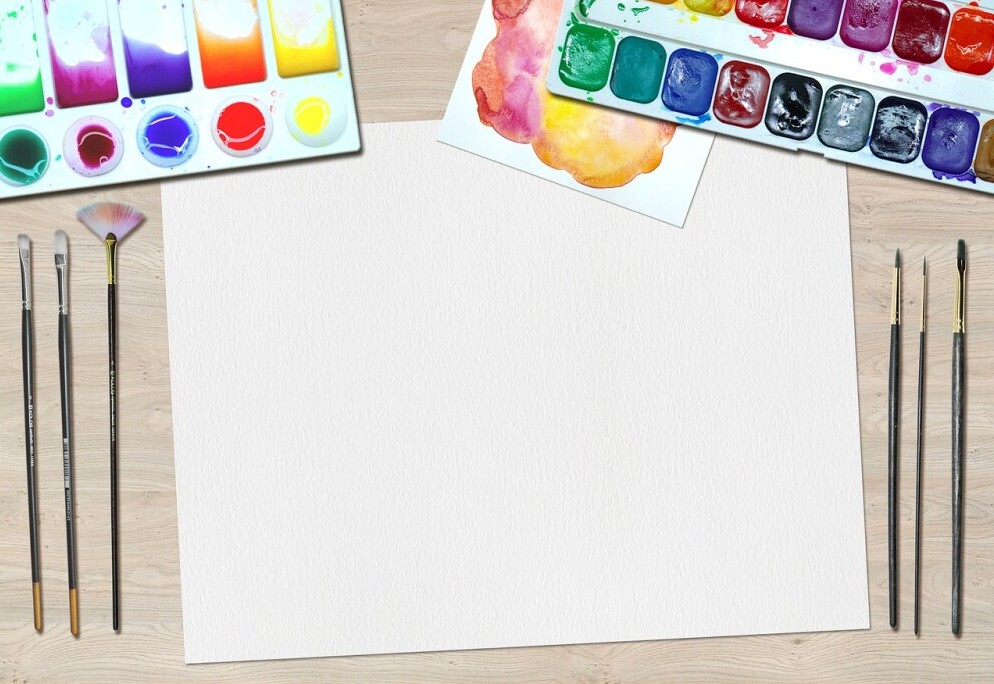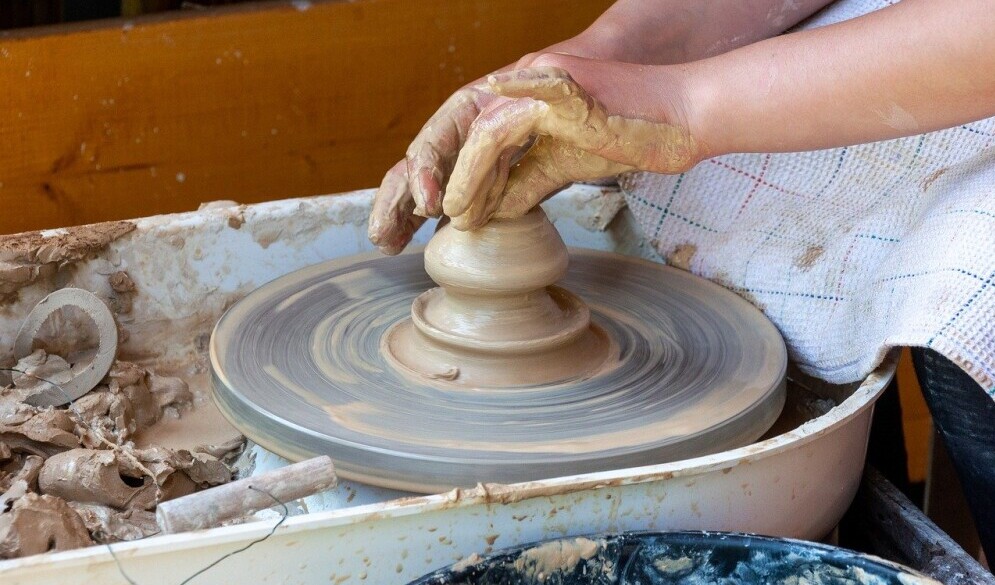Let’s look at why having a hobby is important and why you need hobbies.
Hobbies can provide unexpected benefits in everyday life. They offer a way to relax, spark creativity, and build a tangible sense of accomplishment.
 Why Do You Need A Hobby?
Why Do You Need A Hobby?
In today’s fast-paced world, setting aside time for an activity that truly interests you can help maintain a balanced mind and body.
This article explores why pursuing a good hobby is more than a mere pastime. It can also improve your overall well-being and open up new avenues for personal growth.
Why Hobbies Matter
Having a hobby is a very important way to disconnect from daily stress. When you invest time in something that genuinely interests you, it offers a much-needed break from routine tasks and pressures. A good hobby lets you step away from the demands of work or home responsibilities. It creates room for mental refreshment, reducing stress levels and promoting a calmer outlook on life.
Hobbies add grace to your life by offering a serene escape from the everyday rush. Hobbies are the perfect way to maintain harmony in your busy schedule.
Engaging in things that you love to do releases happy hormones.
Hobbies also encourage creativity. They challenge you to think in new ways.
For instance, picking up painting or writing can transform abstract ideas into tangible expressions. Even hobbies that involve physical activity such as gardening or cycling stimulate creative thinking by bringing together different skills and interests.
This process of experimentation can help develop problem-solving abilities that translate to other parts of life. Many people find that getting involved in such activities not only provides an immediate sense of satisfaction but also builds skills that are beneficial in professional and personal settings.
Hobbies let your imagination run wild and you might discover talents you never knew you had.

Beyond the mental benefits, hobbies contribute significantly to physical health. Activities like dancing, hiking, or even simple home workouts can boost physical fitness in a fun and approachable way. They add a layer of structure to exercise routines without the pressures associated with traditional workouts.
Regular involvement in a hobby that requires movement helps tone the body, increase flexibility, and even improve balance. Over time, the cumulative effect on your physical condition can be considerable, leading to a healthier lifestyle overall.
Furthermore, getting involved in hobbies frequently leads to meeting like-minded people. This sense of community is a wonderful way to exchange ideas and experiences. Social interaction in a relaxed setting can improve communication skills and expand your network with friends who share similar interests.
In many cases, these new connections turn into lasting relationships that extend well beyond the realm of the hobby itself.
The Variety of Hobbies Worth Considering
There is a wide range of hobbies available to suit different preferences and lifestyles. Starting with a clear idea of your interests is important in guiding you in the right direction. It might be helpful to explore several options before committing to one, as each hobby offers its own rewards and challenges. Below are some ideas that many find both fulfilling and exciting.
- Creative Arts: Activities like painting, sculpting, or photography let you express yourself artistically. They provide a creative outlet that can be both calming and energizing, offering a space where you can let your imagination run wild and create something uniquely yours.
- Writing and Literature: Writing short stories, keeping a journal, or blogging allows you to organize your thoughts and narrate personal experiences. Over time, this practice can refine your communication skills, making it easier to articulate ideas and connect with others through words.
- Outdoor Adventures: Hiking, cycling, or gardening not only provides physical exercise but also fosters an appreciation for nature. Spending time outdoors is linked with an improved mood and enhanced mental clarity as fresh air and natural surroundings work together to soothe the mind.
- Collecting and Crafting: Engaging in model building, scrapbooking, or even collecting coins can be both educational and therapeutic. It gives you a structured yet playful way to spend leisure time while also preserving memories and developing detailed skills.
Choosing the right hobby often depends on balancing practical concerns with personal taste. It is important to think about what you want most from a hobby. Whether the goal is to build skills, socialize, or simply unwind, there is a hobby that aligns with your aspirations.
Spending time in an activity you love isn’t just about filling free time. It is about creating moments of true joy and satisfaction that ripple into every part of your life.
Getting Started with a New Hobby
Jumpstarting a hobby adventure can feel both exciting and a little overwhelming. One smart way to begin is by setting aside a specific time in your schedule for the activity. This dedicated slot guarantees that hobby time has priority, even during the busiest of periods. Establishing a routine helps in making the new commitment a regular part of your life.
Begin with manageable goals to avoid feeling overwhelmed. Dedicate a regular time for your hobby and treat it as an important part of your routine.
Focus on the joy your hobby brings rather than perfection.
Keep experimenting and trying new things to stay engaged.
Celebrate milestones to keep motivation high.
Another essential tip is to do some research. Learning the basics related to your chosen hobby can boost your confidence as you start out.
For example, if you decide to take up gardening, understanding different plant species, soil types, and seasonal trends will help you achieve better results. Similarly, if writing appeals to you, spending time studying techniques and reading widely can provide a strong foundation. In this sense, getting involved in preparatory work makes the hobby more approachable and fun.
Investing in the right starter tools is also important. There is no need to purchase the most expensive gear right away. Instead, look for entry-level tools that fit within your budget while meeting the basic requirements of your hobby. As you improve, you might gradually upgrade your supplies, ensuring that each investment is thoughtful rather than impulsive. This cautious approach helps you commit fully without the worry of wasting resources.
It can also be very beneficial to join local clubs or online communities where others share your enthusiasm. Participating in group activities or discussions offers motivational support and practical advice. Such communities create welcoming spaces, making it easy to ask questions and share progress without fear of being judged. When you join these groups, you open yourself up to learning new tips and tricks that can accelerate your growth in the hobby.
Setting achievable goals is another very important tactic. Clear, measurable targets serve as anchors in your hobby practice. For example, a beginner in photography might aim to master a specific lighting technique, while a writer could set a target to finish a short story within a month. These goals keep the process engaging, providing a sense of direction and accomplishment as you see gradual progress over time.
Common Challenges and How to Overcome Them
Starting a hobby is exciting, but challenges often emerge as part of the adventure. Time management is a frequent hurdle, especially when balancing work or family responsibilities. Many people find that the best approach is to dedicate small, regular blocks of time to the hobby rather than attempting long sessions right from the start. This steady approach can make the hobby more sustainable in the long run.
Dealing with initial frustration is another common concern. When trying something new, progress might be slow and improvement unpredictable. It is important to remember that every expert started as a beginner. Patience is key to developing new skills, and gradual progress builds both competence and confidence. Reminding yourself that setbacks are simply stepping stones can help maintain motivation.
Financial constraints can also pose a challenge, particularly if the hobby requires specialized equipment or courses. One effective strategy is to explore free or low-cost versions of the activity at first. Local libraries, community centers, or online tutorials are excellent resources that allow you to learn without a significant financial investment. As your passion grows, investing in higher-quality resources may become justified, but starting on a lean budget ensures you are comfortable with the commitment before spending more money.
There may also be moments when your motivation wanes. Overcoming these dips in enthusiasm involves finding creative ways to keep the hobby engaging and fun. Sometimes, mixing in different techniques or even combining related hobbies can reignite your interest. For instance, if a photography enthusiast grows tired of taking standard snapshots, experimenting with different angles or subjects might bring back that next-level cool spark of creativity. It is all about finding new challenges and opportunities within your hobby to keep the journey exciting.
Practical planning and a willingness to experiment help overcome nearly every obstacle. Understanding that challenges are simply part of the learning curve allows you to see setbacks as opportunities for growth. This mindset not only eases frustration but also encourages you to try new methods and approaches, leading to continual self-improvement over time.
Advanced Tips for Taking Up a Notch With Your Hobby Experience

For those who have established a consistent routine with their hobbies, looking into ways to give a boost to the overall experience can be incredibly rewarding. As you become more comfortable and skilled, consider participating in competitive or showcase events. Joining contests or exhibitions adds an exciting element of friendly rivalry, possibly encouraging you to push your boundaries even further.
Continuing education remains very important no matter which hobby you choose. Many communities offer advanced workshops or masterclasses that explore the finer details of your interest. Whether you are polishing photography skills or refining a musical technique, ongoing learning helps keep your approach fresh and well-informed. These educational opportunities can provide new insights and methods that you might not have discovered on your own.
Teaming up on projects with others offers another excellent opportunity to expand your hobby horizons. Working together with fellow enthusiasts can introduce you to new ideas and methods that you might not have encountered by yourself. Sharing resources, exchanging feedback, and collaborating on joint projects can deepen your passion and stimulate innovative adaptations in your hobby. This kind of teamwork not only makes the process more fun but also creates a supportive network of individuals with a common interest.
Technology and online tools are also making it easier to manage and improve your hobby. From keeping digital journals to participating in specialized forums and watching video tutorials, these resources help you track your progress and pick up new techniques. Integrating modern tools into your hobby routine can add structure and measurable results over time. For many enthusiasts, using these digital assets is a game changer that opens up fresh possibilities for learning and improvement.
In addition, consider setting up a dedicated space for your hobby at home. Whether it is a small corner of a room or an entire studio, having a personal area reserved for your interests can make a significant difference. This space ensures you have a regular, uninterrupted time for creativity and relaxation, further fueling your passion as you achieve more with each session.
Frequently Asked Questions
Question: How can a hobby improve my life?
Answer: A hobby offers both mental and physical benefits. It creates time for relaxation, fires up creativity, and even boosts physical health through active involvement. Moreover, it builds skills that can be applied in various areas of life, from problem-solving at work to creative expression at home.
Question: How do I choose the right hobby?
Answer: Think about what interests you the most and what fits into your daily routine. Whether it’s a creative art, a physical activity, or a mix of both, choose something that aligns with your personal goals and lifestyle. Experiment with different activities until you stumble upon one that truly resonates with you.
Question: What if I lack the time to pursue a hobby?
Answer: Start small by dedicating even 20 to 30 minutes a day to your hobby. Over time, these short sessions can lead to noticeable progress and a more balanced lifestyle. Remember, every little bit counts when it comes to boosting your well-being, and consistent small efforts can eventually transform your free time into a productive and enjoyable activity.
Final Thoughts
A good hobby is not just a way to pass the time. It provides a foundation for personal growth, stress relief, and creative exploration. By dedicating even a small portion of your day to an activity you enjoy, you can foster a sense of achievement and joy that significantly improves your quality of life. The practice of getting involved in a hobby is an investment in yourself that pays dividends in relaxation, skill development, and overall happiness.
The adventure might start with minor steps and occasional challenges, but the rewards are evident as you progress. Learning new skills and connecting with others who share your interests builds positive momentum that extends well beyond the hobby itself. Small, consistent actions taken today can lead to a more fulfilling, balanced, and inspired life tomorrow.
Remember, every hobbyist starts as a beginner. With dedication, an open mind, and a willingness to adapt, you can transform your free time into an enriching experience. Explore various options, overcome obstacles with persistence, and most importantly, enjoy the entire process. Your hobby has the immense potential to bring joy, improve your life, and provide an exciting outlet for creative expression. Keep experimenting, and always be open to mixing things up as you continue this next stage of growth. By nurturing your interests and consistently setting aside time for what you love, you are not only investing in a pastime but also laying the groundwork for a happier, healthier future.
This comprehensive look at hobbies shows that the benefits extend into every facet of life. Whether you are seeking mental respite, physical activity, or social interaction, there is something out there for everyone. In the end, the small steps you take today can dramatically shift your life for the better, turning leisure into an opportunity to build skills, forge friendships, and, most importantly, feel truly alive.
Bottom line: a fulfilling hobby is one of the best gifts you can give yourself.

I really appreciated how this article lays out the multifaceted benefits of having a good hobby not just as a way to pass the time, but as a powerful tool for stress relief, creativity, and personal growth. The practical tips for getting started, from setting aside dedicated time and setting achievable goals to joining communities where you can share your progress, really make the idea of pursuing a hobby feel both accessible and transformative. It got me wondering: for those who’ve recently embraced a new hobby, how have you managed to balance it with your daily responsibilities, and what unexpected benefits have you experienced along the way?
I love hobbies for the exact reasons that you stated about creativity, relaxation, and accomplishment. It really does provide a mind/body balance and a reduction in stress and overwhelm. My main hobbies are reading, writing, dancing, and golf. They all provide me an interesting way to let go and enjoy the moment. I also meet a lot of new people. When I was young I used to knit with my family and it was both fun and relaxing. Thanks for providing these interesting insights on hobbies.